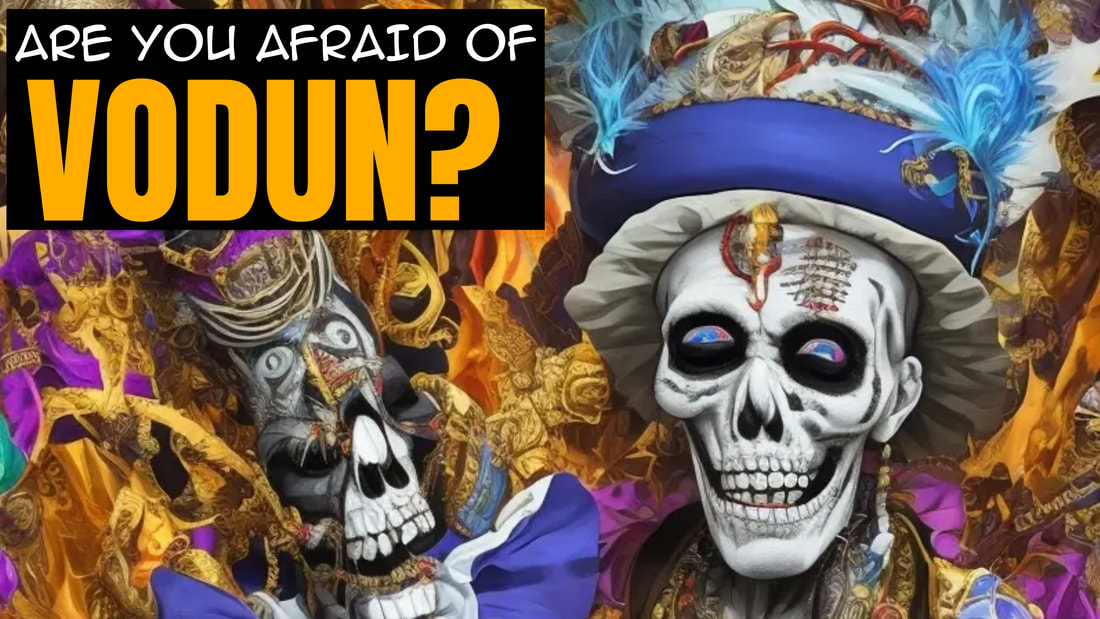|
In the heart of West Africa, nestled among the thriving civilizations of the Fon, Ewe, and Yoruba people, lies the ancient spiritual tradition known as Vodun. Originating in the region that spans present-day Togo, Ghana, Benin, and Nigeria, Vodun emerged as a complex and vibrant belief system that intertwined spirituality, ancestor worship, and a profound connection to the forces of nature. Vodun, often misunderstood as "voodoo" due to purposeful Western misinterpretations, is deeply rooted in African cosmology. It was practiced by diverse ethnic groups, each contributing unique elements to the overall tapestry of the spiritual system. The Fon people, particularly those in the Kingdom of Dahomey (modern-day Benin), played a pivotal role in shaping and formalizing Vodun practices. Central to Vodun are a multitude of deities, spirits, and ancestors, each governing specific aspects of the natural and supernatural realms. Some of the prominent Vodun deities include: 1. **Papa Legba:** The guardian of crossroads and mediator between the human and divine realms. 2. **Damballah-Wedo:** Often depicted as a serpent, Damballah-Wedo is associated with creation, wisdom, and fertility. 3. **Erzulie:** The goddess of love and beauty, symbolizing femininity and compassion. 4. **Ogun:** A powerful warrior deity associated with iron, war, and labor. Vodun ceremonies are dynamic and participatory, involving drumming, singing, dancing, and offerings to honor the spirits. Rituals often occur in sacred spaces, where devotees gather to connect with the divine forces. Animal sacrifice, symbolic of reciprocity between humans and spirits, is a common aspect of Vodun ceremonies. The 16th to 19th centuries marked a dark chapter in history with the Trans-Atlantic Slave Trade, during which millions of Africans were forcibly displaced to the Americas. Amid the harrowing journey of the Middle Passage and the brutal conditions of plantation life, Vodun became a resilient thread connecting the African diaspora to their roots. Enslaved individuals, stripped of their homeland and cultural identity, clandestinely preserved their spiritual traditions. Adapting to the new environment, Vodun fused with elements of Christianity and indigenous beliefs, giving rise to syncretic practices such as Haitian Vodou, Cuban Santería, and Brazilian Candomblé. Today, Vodun is a living tradition in West Africa and the diaspora. In Benin, it is recognized as an official religion, and practitioners maintain a profound connection to their ancestral heritage. Across the Americas, from Haiti to New Orleans, Vodun has left an indelible mark on cultural expressions, influencing art, music, and spirituality. The African origins of Vodun serve as a testament to the resilience of a people who, against all odds, preserved their spiritual heritage and transmitted it through generations. From the shores of West Africa to the far-reaching corners of the diaspora, the sacred rhythms of Vodun continue to echo, a testament to the enduring spirit of a people bound by the sacred ties of faith and resilience.
0 Comments
Leave a Reply. |
Details
Categories
All
Click Here to join our mailing list
|
Contact Us: |
Connect With Us |
Site powered by PIT Web Design


 RSS Feed
RSS Feed



